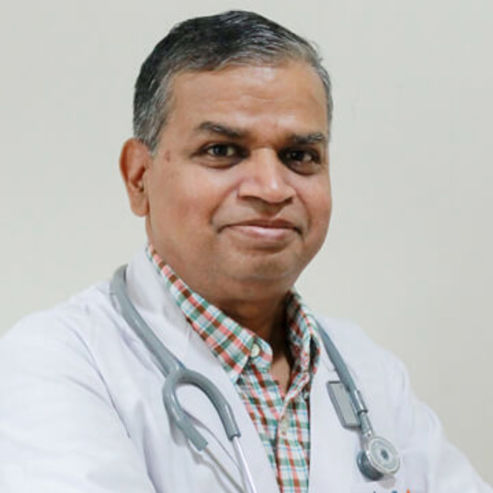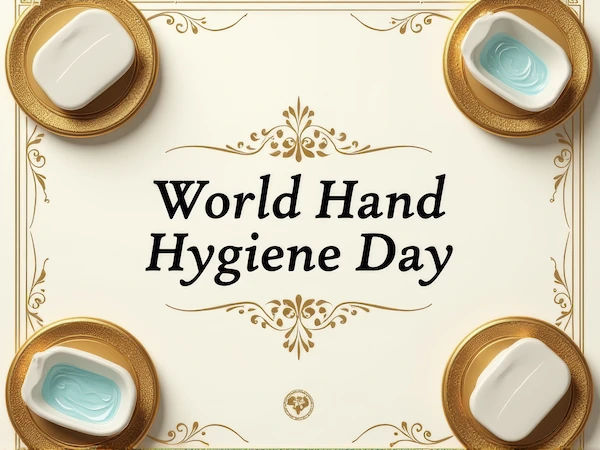Guide to What Factors Will You Consider In Choosing A Hospital For Your Childs Congenital Heart Disease
Know about the factors in choosing for childs heart disease, what it is, what the doctors team offers, facilities, technology, aftercare, safety, quality, and family care.

Written by Dr. Dhankecha Mayank Dineshbhai
Reviewed by Dr. Rohinipriyanka Pondugula MBBS
Last updated on 13th Jan, 2026

Introduction
When your child is diagnosed with a congenital heart disease, choosing the right hospital can feel overwhelming. The stakes are high, the terms are complex, and every decision feels urgent. The good news: you can make a confident, informed choice by focusing on clear, evidence-based factors that truly impact outcomes. We analysed top-ranking guidance from leading organisations and children’s hospitals to bring you a comprehensive, plain-English roadmap. You’ll find specific questions to ask, signs of quality to look for, and expert-backed advice tailored to parents. Along the way, we’ll highlight unique insights, such as how to interpret risk-adjusted outcomes and why continuity into adult congenital cardiology matters. Whether you’re preparing for a consultation, comparing options, or seeking a second opinion, this guide organises the most important factors so you can focus on what matters most: the best possible care for your child’s heart.
Consult a Top Paediatric Cardiologist for Personalised Advice
Understanding Your Child’s Congenital Heart Disease and Care Needs
Congenital heart disease ranges from simple defects that resolve without intervention to complex conditions requiring staged surgeries or specialised catheter-based procedures. Understanding your child’s diagnosis helps you identify the hospital features that matter most.
Types of CHD and why complexity matters: Conditions like ventricular septal defect (VSD) or atrial septal defect (ASD) may be straightforward, while hypoplastic left heart syndrome (HLHS), transposition of the great arteries (TGA), or tetralogy of Fallot (TOF) can be more complex. Complexity influences the level of expertise and resources required. Hospitals with high experience in your child’s specific heart disease often show better outcomes, especially for high-risk procedures. The CDC estimates that congenital heart defects occur in nearly 1 in 100 births, with a subset requiring surgery or continuous care throughout life.
Surgical vs. catheter-based treatments: Some children benefit from interventional cardiology procedures (e.g., device closures, balloon valvuloplasty, stenting) performed in a cath lab; others need open-heart surgery or staged operations. Ask each hospital how often they perform your child’s exact procedure, how often they choose catheter-based options, and their success and complication rates. Interventional approaches can shorten hospital stays and reduce scarring, but only when performed by an experienced pediatric team with dedicated facilities.
Why lifelong follow-up influences hospital choice: Congenital heart disease is a lifelong condition. Many children require ongoing surveillance, medications, or re-interventions as they grow. Hospitals with robust transition programs into Adult Congenital Heart Disease (ACHD) care can provide continuity as teens become adults—an important, sometimes overlooked factor that can reduce gaps in care and emergency hospitalisations. If your child was diagnosed prenatally, check for a strong fetal cardiology program and seamless coordination with obstetrics and neonatology. For initial guidance or a quick second opinion on next steps, you can consult a pediatric cardiologist online; if you’re in India, Apollo24|7 offers convenient access to pediatric specialists for early guidance and triage.
Hospital Experience and Outcomes: What the Numbers Really Mean
Surgical volume and outcomes: For complex congenital heart surgery, hospitals that perform more procedures, especially for specific, high-complexity operations, often achieve better outcomes. The Society of Thoracic Surgeons (STS) Congenital Heart Surgery Database publicly reports hospital-level mortality rates, star ratings (1 to 3), and occasionally procedure-specific results, all adjusted for case complexity. Ask hospitals to share their most recent, risk-adjusted outcomes for your child’s procedure, not just overall averages.
Risk adjustment explained: Not all heart disease cases are equally risky. Risk adjustment accounts for patient complexity (e.g., prematurity, genetic syndromes, multiple anomalies), offering a fairer comparison between hospitals.
Look for centers that transparently explain their data and participate in public reporting.
ICU outcomes and PC4 reporting: The Pediatric Cardiac Critical Care Consortium (PC4) tracks ICU metrics like mortality, length of stay, infection rates, and extubation practices. Hospitals engaged in PC4 often improve faster through benchmarking and peer learning, which can shorten recovery times and reduce complications [4]. Ask if the hospital participates in PC4 and if they share ICU-focused outcomes.
Rankings: useful but limited: U.S. News & World Report considers outcomes, patient experience, structural measures, and expert opinion to rank programs [5]. Rankings can guide your shortlist but should not outweigh procedure-specific outcomes, ICU performance, and team experience for your child’s exact condition.
The Pediatric Heart Team: Expertise You Should Expect
A hospital is more than a building—it’s a multidisciplinary team working in sync. For congenital heart disease, the core team includes cardiothoracic surgeons, interventional cardiologists, cardiac anesthesiologists, pediatric cardiac intensivists, perfusionists, and specialized nurses. Depth across these roles is essential.
Surgeons and interventionalists: Ask how many surgeons perform your child’s operation and their individual volumes, not just the department’s total. For catheter-based care, ask about device closure success rates, radiation doses in the cath lab, and backup surgical support if complications arise.
Anesthesia and ICU: Pediatric cardiac anesthesia expertise reduces intraoperative risks and improves recovery.
Pediatric cardiac ICU teams trained in congenital heart disease can detect subtle hemodynamic changes early, preventing complications. PC4 participation is a positive sign of ICU quality [4].
Fetal cardiology, genetics, and imaging: Many children with CHD have genetic syndromes; access to pediatric genetics can guide care plans. Advanced imaging—high-quality echocardiography, cardiac MRI/CT, and even 3D printing or virtual planning—helps teams personalize surgery. Accreditation of the echo lab (IAC Echocardiography) is a positive marker.
Second opinions and case conferences: Top centers welcome second opinions and present cases in multidisciplinary
conferences. They should provide clear, balanced explanations of options: surgery vs. interventional cardiology vs.
watchful waiting and include you in shared decision-making.
Facilities, Technology, and Access to Advanced Care
Facilities can be the difference between a smooth recovery and an avoidable complication. For children with high-risk
heart disease, certain capabilities are non-negotiable.
ECMO and high-acuity support: Extracorporeal membrane oxygenation (ECMO) supports heart and lung function in
critical situations. Centers listed with ELSO and experienced in pediatric cardiac ECMO are better prepared for rare but
serious complications [6]. Ask how often they use ECMO for cardiac patients and their survival rates.
Hybrid OR and cath lab: A hybrid operating room allows surgeons and interventional cardiologists to collaborate in
one setting, enabling complex, less invasive procedures. For many defects, a state-of-the-art cath lab with low-radiation
protocols and congenital-specific equipment is essential. This is especially relevant for staged palliation strategies or
when re-interventions are expected.
Echocardiography and 3D planning: IAC-accredited echo labs adhere to quality standards. Some centres create 3D
models or use virtual reality planning for complex anatomy to minimise surprises in the OR. These technologies can
reduce bypass times and improve outcomes.
Telehealth and rapid transfers: A strong telemedicine program facilitates pre-op consultations and post-op follow-ups
without constant travel. For families living far from a center, ask about partnerships with local hospitals and their ability to transfer your child quickly if needed.
Safety, Quality, and Accreditation You Can Verify
Transparency and accreditation are objective signals of safety in pediatric heart disease care.
Data transparency: Hospitals that participate in STS and PC4—and publicly report results—demonstrate a culture of
accountability and learning. Ask for the latest published data and how they respond to trends.
Nursing excellence and hospital accreditation: Magnet recognition (ANCC) reflects nursing excellence and can
correlate with improved patient outcomes [8]. Joint Commission accreditation denotes hospital-wide safety standards.
For imaging, IAC accredits echo labs [7]. For advanced life support, ELSO center participation signals ECMO capability [6].
Infection control and readmissions: Ask for surgical site infection rates, bloodstream infection rates in the ICU,
unplanned readmissions, and unplanned reoperations within 48–72 hours. These quality indicators directly affect recovery.
Length of stay and complications: Shorter, safer length of stay and lower complication rates are positive signals.
Confirm what protocols they use to reduce ventilator time, pain, and delirium in the ICU.
Family-Centred Care, Communication, and Support
Even the best clinical care can falter without strong communication and support for families.
Bedside communication: Expect daily, structured updates from the team, plain-language explanations, and a single
point of contact (often a nurse coordinator). Ask how the hospital ensures consistent messaging across surgeons,
cardiologists, and ICU staff.
Language and cultural access: Interpreter services, translated materials, and culturally sensitive care reduce misunderstandings and stress. This is especially important for complex instructions (e.g., medication titration, wound care).
Social work and logistics: Dedicated social workers can help with lodging (e.g., Ronald McDonald House), financial counseling, transport, and school coordination. Child life specialists and psychologists support coping; sibling programs and parent support groups ease isolation.
Discharge and home monitoring: Many centers use home pulse oximetry programs, especially after staged surgeries, to catch issues early. Ask for written discharge plans, emergency contact pathways, and telehealth follow-ups. If your child has ongoing symptoms (difficulty feeding, blue lips, respiratory distress), seek urgent care. If symptoms persist or you need guidance before travel, consult a pediatric cardiologist online with Apollo24|7 for timely advice and referral guidance..
Red flags:
- No participation in STS or PC4, or refusal to share outcomes
- Inconsistent answers about volumes or unclear primary surgeon assignment
- Lack of pediatric-specific anaesthesia and ICU teams
- No clear discharge plan or weak family support services
- High infection rates without a clear improvement plan
Documenting decisions:
- Create a one-page comparison for your top three hospitals: volumes, outcomes, ICU metrics, support services, travel
time, and costs. - Write down your values (e.g., proximity vs. highest volume) to guide trade-offs.
- If your condition does not improve after trying these methods or you remain unsure, book a direct consultation with a
pediatric cardiologist. If you need quick access, Apollo24|7 can help coordinate online consults and referrals.
Conclusion
Choosing a hospital for your child’s congenital heart disease is both a medical and a personal decision. The most reliable path is to prioritize factors that consistently predict better outcomes: high, recent volume in your child’s specific procedure; transparent, risk-adjusted results; strong pediatric cardiac ICU quality; and a cohesive, multidisciplinary team. Verify essentials like ECMO, hybrid OR capability, and an IAC-accredited echo lab, and look for hospitals that participate in STS and PC4 public reporting. Don’t overlook the human side—family support services, clear communication, language access, and mental health resources can ease stress and speed recovery. Practical realities—insurance, travel logistics, and a plan for transitioning to adult congenital care—will shape your long-term experience. Use the checklist, ask direct questions, and trust data over marketing. If you need help sorting options or want a quick second opinion, consult a pediatric cardiologist online; services like Apollo24|7 can help you speak to a specialist and prepare the right records. Your advocacy, combined with the right hospital team, gives your child the strongest start for a healthy future.
Consult a Top Paediatric Cardiologist for Personalised Advice
Consult a Top Paediatric Cardiologist for Personalised Advice

Dr. Navin Jain
Paediatrician
30 Years • MBBS, DCH (Diploma in Child Health)
Bangalore
Apollo Clinic Bellandur, Bangalore

Dr. Millan Kumar Satpathy
Cardiologist
16 Years • MBBS, MD (Internal Medicine, VSS Medical College) DM (Cardiology, SCB Medical College). Senior Consultant - Cardiology
Rourkela
Apollo Hospitals, Rourkela, Rourkela

Dr. Muthukumaran C S
Paediatric Cardiologist
22 Years • DCH, MRCP, MRCPCH, CCST (UK)
Chennai
Apollo Children Hospitals Greams Road, Chennai
(75+ Patients)
Dr Chavan Rajendra
Cardiologist
16 Years • MBBS, MD (GEN. MED.), D M (CARDIOLOGY).
Pune
Apollo Clinic, Nigdi, Pune

Dr. Jayaram Y R
Paediatrician
37 Years • MBBS, DCH
Bengaluru
Apollo Clinic, JP nagar, Bengaluru
Consult a Top Paediatric Cardiologist for Personalised Advice

Dr. Navin Jain
Paediatrician
30 Years • MBBS, DCH (Diploma in Child Health)
Bangalore
Apollo Clinic Bellandur, Bangalore

Dr. Millan Kumar Satpathy
Cardiologist
16 Years • MBBS, MD (Internal Medicine, VSS Medical College) DM (Cardiology, SCB Medical College). Senior Consultant - Cardiology
Rourkela
Apollo Hospitals, Rourkela, Rourkela

Dr. Muthukumaran C S
Paediatric Cardiologist
22 Years • DCH, MRCP, MRCPCH, CCST (UK)
Chennai
Apollo Children Hospitals Greams Road, Chennai
(75+ Patients)
Dr Chavan Rajendra
Cardiologist
16 Years • MBBS, MD (GEN. MED.), D M (CARDIOLOGY).
Pune
Apollo Clinic, Nigdi, Pune

Dr. Jayaram Y R
Paediatrician
37 Years • MBBS, DCH
Bengaluru
Apollo Clinic, JP nagar, Bengaluru
More articles from General Medical Consultation
Frequently Asked Questions
1) How important is hospital volume for pediatric heart surgery?
Very. For complex congenital heart disease, high, recent volume in your child’s specific operation is linked to better outcomes. Ask for procedure-specific, risk-adjusted mortality and complication rates from STS public reporting.
2) Should I rely on national rankings to choose a hospital?
Rankings can help shortlist options but shouldn’t be your only guide. Prioritize risk-adjusted outcomes, ICU quality (PC4), and team experience for your child’s exact diagnosis.
3) What facilities should a top pediatric heart centre have?
For higher-risk cases: ECMO capability (ELSO participation), a hybrid OR, IAC-accredited echocardiography lab, dedicated pediatric cardiac anaesthesia, and a specialised cardiac ICU.
4) Can I get a second opinion without travelling?
Yes. Many centres offer virtual second opinions. If you need quick guidance or help prioritizing options, consider an online consultation with a pediatric cardiologist; Apollo24|7 can connect you to specialists who review your child’s records.
5) How do I plan for long-term care after surgery?
Ensure the hospital has a structured follow-up plan, home monitoring if needed, and a formal ACHD transition program. Look for shared-care arrangements with local cardiologists and telehealth access.




